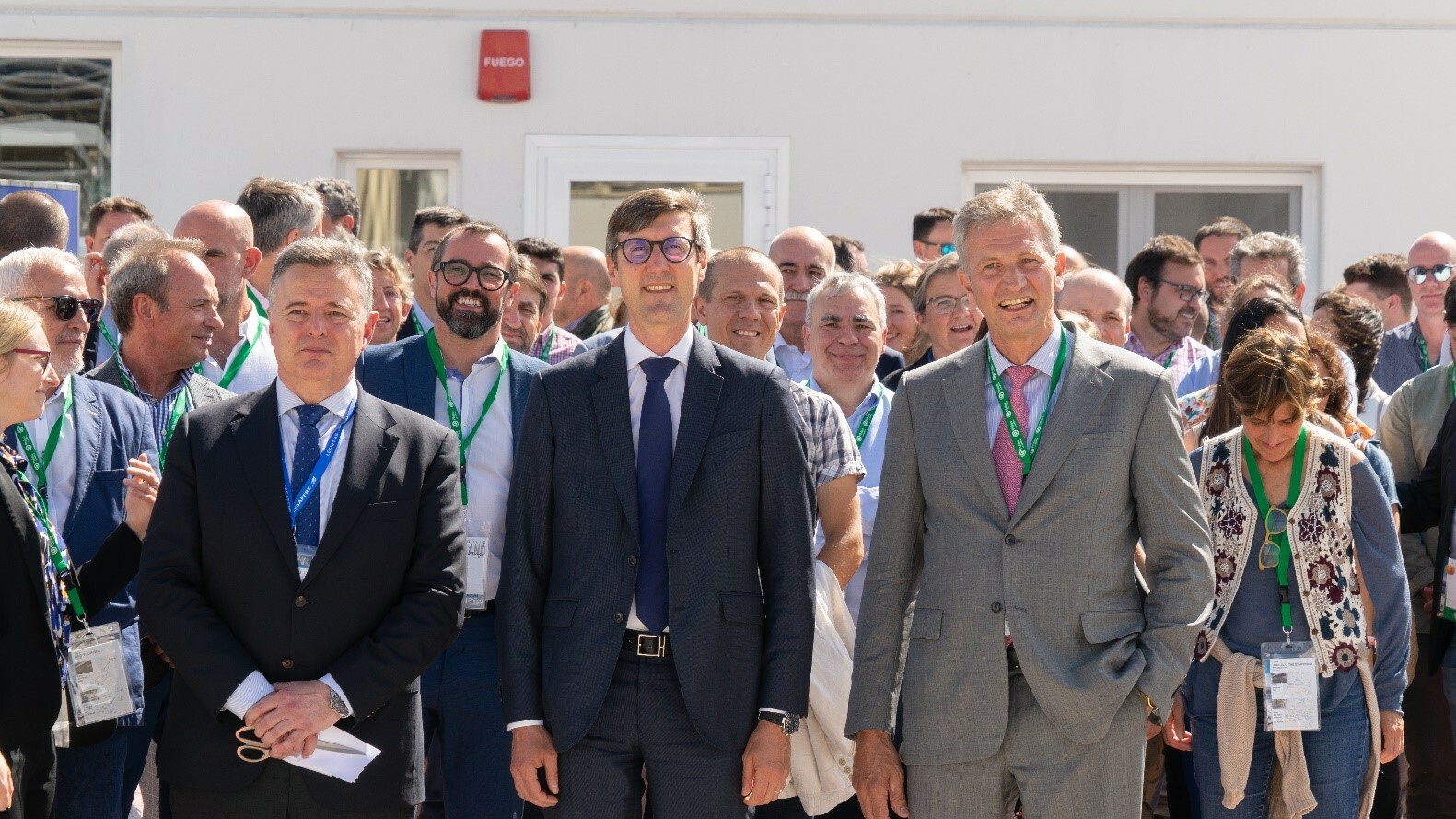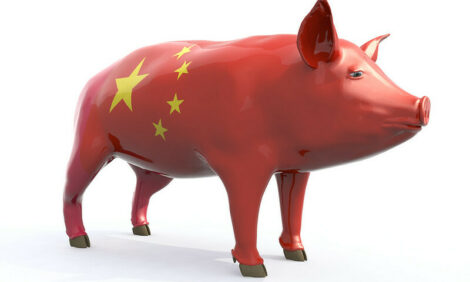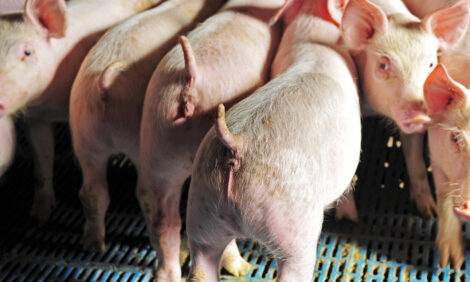



Phileo celebrates sustainable agriculture at their new factory in Valladolid, Spain
Phileo by Lesaffre hosted key livestock stakeholders to discuss the future of sustainable agricultureEditor's note: headline image shows General Manager Lesaffre, Dr Brice-Audren Riché welcoming all the visitors.
In mid-June, Phileo by Lesaffre celebrated the opening of the new factory in Valladolid, Spain. More than 100 customers and business partners from the agricultural industry joined Phileo for an afternoon and evening of networking and celebration followed by a thought-provoking symposium entitled ‘Reconciling Planet, People and Profit for a positive impact.’
An integral aspect of sustainability is the responsible local sourcing of raw materials and ingredients. Committed to a sustainable agrifood industry and to answer the growing demand, Lesaffre constructed a new factory in Valladolid for the production of Selsaf, Phileo’s nutritional solution enriched in organic selenium, and the ideal location to discuss the future, and examine available and future solutions for a sustainable agriculture.
"For 170 years, and on the initiative of its founders Louis Lesaffre and Louis Bonduelle, the group has built itself up with a very strong entrepreneurial spirit, and a constant concern to meet the evolving needs of its customers in various fields of expertise. The inauguration of this new selenium-enriched yeast factory to serve the animal nutrition sector is an example of Lesaffre's desire to evolve and grow alongside its customers, in a spirit of partnership", said Brice-Audren Riché, General Manager of Lesaffre during his speech.

The next day, Jean Baptiste Dollé, Head of Department Environment at Institut de l’élevage, set de scene of a climate smart agriculture, showcasing methodologies and tools like Cap’2r, that are developed to evaluate the impacts on climate change and water pollution and to assess the positive contributions on biodiversity and carbon sequestration of milk and beef production. A practical example of low carbon dairy and beef farming was given by Maxime Briche, Phileo’s Western Europe Ruminant Manager with data showing how Actisaf, Phileo’s yeast probiotic helps to reduce the climate impact of milk production.
Dr. Elisabeth Santin, ISI Institute Brazil, had the attention of the public when she emphasized the importance of avoiding oxidative stress in animals as it has shown to compromise their health status and lead to immunosuppression and decreased production parameters. Dr. Ruth Raspoet shared this vision and elaborated how Selsaf helps the body resist against oxidative stress (which is detrimental to animal performance), both in the short term (thanks to selenocysteine) and in the long-term (due to selenomethionine) and boosts natural defences of animals.
This dual protection leads to dual benefits to farmers and consumers. For farmers, Selsaf supports animal health (better embryo viability and survival rate, more selenium transfer to offspring, less morbidity) and increases animal performance (higher feed efficiency, growth performance, laying intensity). In reducing the oxidation, and therefore the rancidity of animal-derived end-products, Selsaf also brings a lot of benefits to consumers, with more selenium in meat, milk and eggs, and more food pleasure with increased meat quality (less drip loss, increased juiciness, and tenderness).
Dr. Julie Schulthess concluded with a comprehensive talk on immunity and explaining how immune fitness is a measure of animal health, welfare and productivity.
Nourishing the world and preserving the planet is a huge responsibility — and opportunity — for agriculture and Phileo by Lesaffre following the group’s vision, concluded, Dr. Gildas Joalland , chairman of the symposium.







